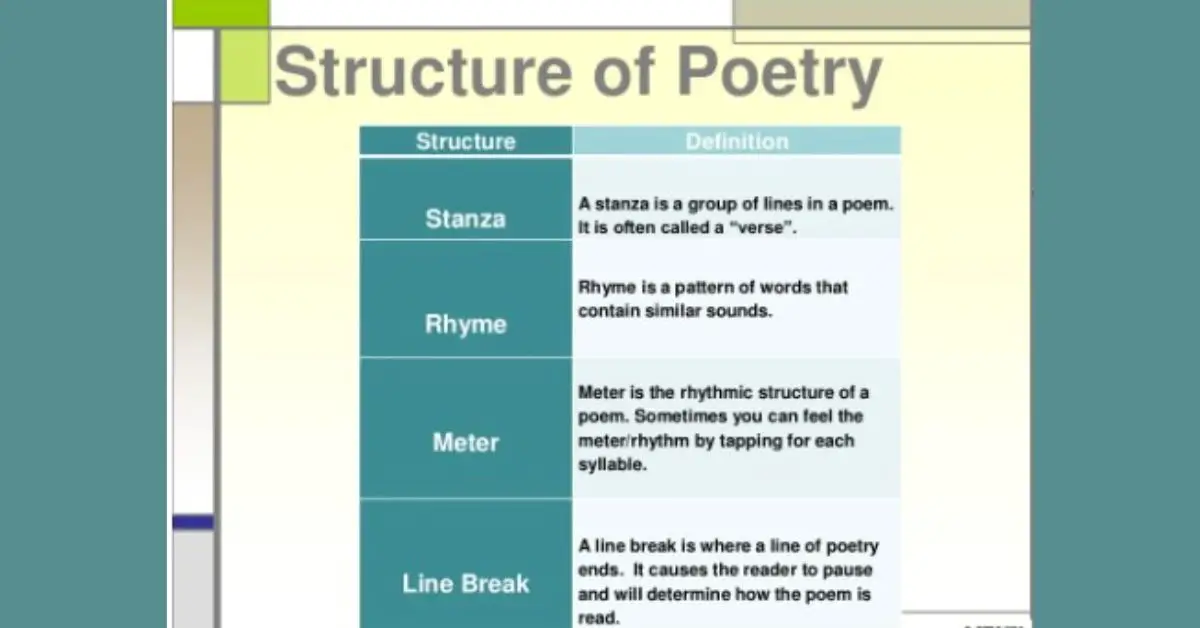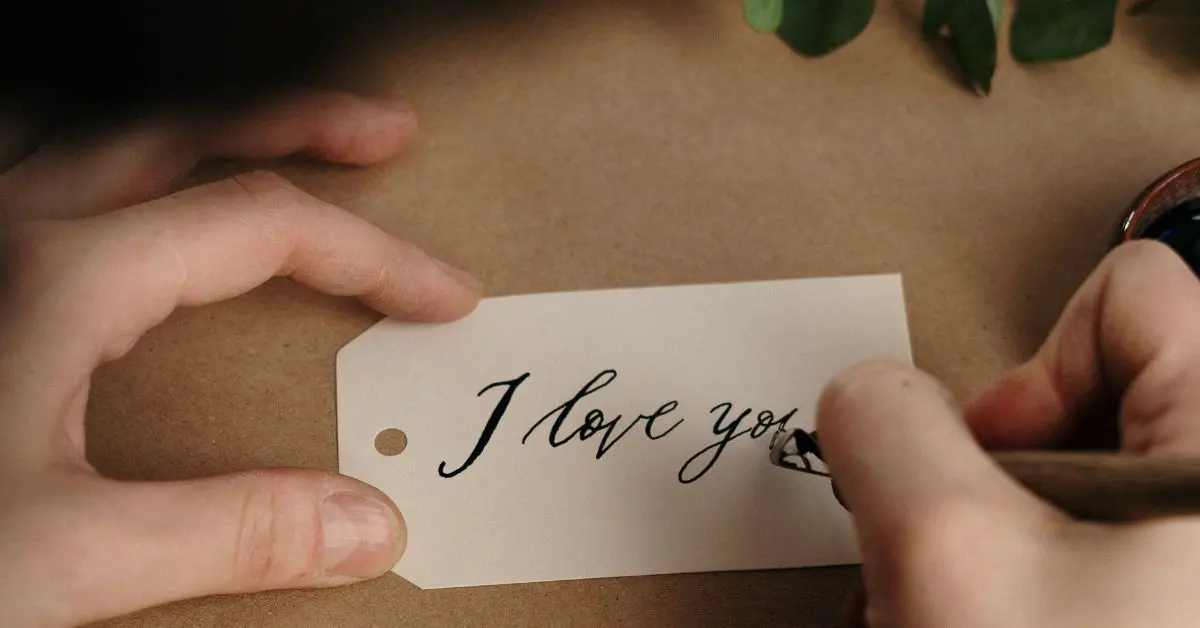Writing Mistakes That Beginner Poets Make

Venturing into the world of poetry can be as thrilling as it is daunting, especially for new poets eager to express their innermost thoughts.
One surprising fact: even the most heartfelt verses can falter due to common writing oversights that many beginners make.
This blog post will arm you with tips and tricks to sidestep these errors, polishing your poetic prowess. Dive in for a smoother literary journey!
Key Takeaways
- Clear goals in poetry help guide readers through the message.
- Simple language often makes a more substantial impact than big words.
- Original voice and style are essential for creating unique poems.
- Poems need structure, like consistent meter and rhyme schemes, to set rhythm.
- Taking time to revise before publishing improves the quality of poetry.
1. Lack of Purpose in Poems

When beginner poets put pen to paper without a clear goal, their words can drift like leaves in the wind—pretty but directionless.
A poem with purpose acts as an arrow, cutting straight to the heart of what it means to feel and experience.
Writing without a clear intention or message
Poems need a strong message or purpose. With this, your writing can be straightforward to readers. Imagine trying to find your way in the dark.
That’s what it feels like for someone reading a poem without a clear direction.
You want every line to mean something and take your reader closer to an understanding of the message you’re sharing.
Free verse poetry still needs intention behind it. Just breaking up prose into lines doesn’t automatically create powerful poetry.
It’s about crafting each phrase carefully with a goal in mind.
Think about the emotion or idea you want to convey and use that as a compass throughout your piece.
This keeps your poem focused and impactful, leaving readers with clarity and significance after they finish reading.
Lack of a central theme or focus
Just as a clear intention gives direction to your writing, having a central theme or focus pulls all your ideas together.
Without this core, readers can get lost in mixed messages.
Your poem might have beautiful language and striking images, but if they don’t add up to one central point, the piece can feel scattered.
This lack of focus is a common mistake that often needs to be clarified for the audience.
Beginner poets should aim to center their work around one key message or image.
A central theme acts like a thread, tying all parts of the poem into a cohesive whole. Metaphors and similes enhance the main idea when they’re used with purpose.
Remember: every line in your poem should relate to its heart – that’s what will resonate with readers long after they’ve finished reading.
2. Overcomplicating Language

Overcomplicating Language: Beginner poets often fall into the trap of obscuring their work with a dense thicket of jargon and elaborate constructs, mistakenly equating complexity with depth.
It’s essential to remember that the power of poetry lies in its ability to resonate clearly and emotively, not just in flexing one’s vocabulary muscle.
Using excessive and unnecessary big words
Big words sometimes make poems better. They can confuse readers and hide your actual message.
Simple language often has more power because it’s clear and direct. If you write poetry, remember that using big words to look smart is a trap.
Your goal is to connect with readers, not send them running for a dictionary.
Wordiness also trips up many new poets. It’s best to cut out any word that doesn’t add meaning or emotion to your poem.
Think about each word you use: does it help the reader understand and feel your intent? If not, let it go.
Clear writing makes strong poems that people want to read again and again.
Overusing figures of speech
Too many figures of speech in a poem can make it hard to read. They might sound fancy, but they can confuse the reader and hide your actual message.
Think about how often you use metaphors or similes. You want to paint a clear picture, not make a puzzle that readers need help solving.
Simple words create strong poems, too. If every line bends with metaphors or wild comparisons, your poem may lose its power.
Use these tools carefully—like a painter uses brush strokes—to enhance your writing, not overwhelm it.
Keep the pace moving and tension high by choosing each figure of speech with purpose.
Creating neologisms (new words)
Creating new words can be fun and show off your creativity. Think of how terms like “blog” or “selfie” started as neologisms, and now everyone uses them.
They give fresh ways to express ideas or things that didn’t have a label before. But be careful not to overdo it.
Making up words becomes a problem when readers need help trying to figure out what they mean.
Your poem should invite people into your thoughts, not lock them out with confusing language no one understands yet.
Keep your made-up words simple and use them sparingly; you want readers to enjoy the music of your poetry, not stumble over odd terms they’ve never heard before.
See the video below for additional rookie mistakes:
3. Copying Other Poets
In the quest to find their voice, many beginner poets fall into the trap of mimicking their idols.
This can stifle originality and leave a poem feeling like a shadow of someone else’s work rather than a piece with its soul.
Plagiarism
Copying someone else’s work is a big no-no in poetry. It can be tempting to borrow lines or ideas, but this is plagiarism.
The numbers don’t lie — 58% of high school students say they’ve plagiarized before.
That’s stealing, and it’s not fair to the real author. To avoid this trap, poets must find their voice and style.
Creative writers sometimes use other people’s words without meaning. Before you write a poem, learn about using information correctly.
The Office of Research Integrity has guides on ethical writing that can help you stay original in your work.
Make sure every word on the page is genuinely yours so your poems shine with authenticity!
Trying to imitate a particular style without adding originality
Many beginner poets fall into the trap of mimicking their favorite writers. They copy styles from established authors.
This can make their work feel unoriginal. It’s good to learn from others, but adding personal touches is critical.
Your voice should shine through.
Using someone else’s style can leave your poetry feeling flat. It would help if you infuse your writing with personal flavor and perspective.
Find inspiration, but remember to be yourself. Blend well-known techniques with fresh ideas for poems that genuinely stand out.
Learn more in the video below:
4. Poor Structure and Scansion
Poetry’s heartbeat lies in its rhythm and form, making structure and scansion critical; without it, you risk losing your reader in a sea of uneven verses.
Remember that the scaffold of meter and rhyme not only supports but can elevate the beauty of your words—neglect this aspect, and even potent imagery may falter.
Inconsistent meter and rhyme schemes
- rhythm and structure
Imagine a song changing beats randomly; it would sound off, right? It’s similar with poems.
Sticking to a pattern in meter and rhyme helps set the tempo for your readers’ experience.
Don’t worry if this sounds tricky—practice makes perfect! Play around with different structures until you find one that feels right for what you want to express.
Next, let’s talk about paying attention to line breaks and stanza lengths.
Not paying attention to line breaks and stanza lengths
Line breaks and stanza lengths are like the heartbeat of a poem. They create rhythm and can make your words sing or fall flat.
Ignoring these pauses is a big poetry mistake. Line breaks can add suspense, lead to surprises, and highlight important thoughts.
Stanzas organize your ideas, group similar images, or separate different parts of your story.
Poets use lineation to give shape to their verse. This structure guides readers as they dive into the emotions and meaning behind each word.
The spaces between lines matter just as much as the words themselves—they let ideas breathe and resonate with the reader.
By choosing where lines end carefully, writers should avoid turning powerful phrases into confusing clumps of text.
See the video below for additional rookie mistakes:
5. Rambling and Going Off-Topic
Keep your poetic compass aligned; when poems meander aimlessly, they lose their power.
Ensure each verse is a step toward your ultimate message—veer not into the tempting wilderness of tangents and trivialities.
Lack of focus and cohesion in the poem
A poem with no clear direction can lose the reader fast. Think about it like a journey without a map; readers can’t follow if the path zigzags or abruptly stops.
Each line should connect to the next, creating a solid thread that pulls your audience along.
Poets often trip up here, tossing in ideas that don’t tie back to their central message. This disconnect makes work feel disjointed.
Beginner poets should aim for unity in their poems. Cohesion is critical — it’s what makes verses flow and meanings clear.
Spotting silly errors gets easier when you’re invested in this goal.
Remember, powerful poems grip hearts and minds because everything fits together right, from the first word down to the last period.
Embrace revision as your tool for crafting poetry that sticks with readers long after they’ve finished reading.
Being too abstract or vague
Just like keeping focus is crucial, steering clear of being too abstract or vague can sharpen your poetry.
Poems lose their power when readers can’t grasp what’s going on. It’s essential to paint a clear picture with your words.
You want people to connect with your writing; stay aware of it.
Only throw in big ideas after explaining them a bit. Sure, leave some room for thought, but make sure readers guess only a little about your meaning.
Keep things specific enough, so they hit home and stay memorable.
Clear poems often stand out more than vague ones because they stick in our minds like songs we can’t stop humming.
Including irrelevant details
Every word in a poem should add to its meaning or feeling. Irrelevant details can confuse readers and make them lose interest.
Poets must choose words carefully, keeping their main message sharp and clear. More extra information can save the focus of a poem.
Writers often need help packing their lines with facts or ideas that don’t fit the central theme.
These extras may seem essential, but they pull readers away from the emotional core of the poetry.
To keep your poem on track, cut out any piece that doesn’t serve your purpose or enhance the reader’s experience.
Now, let’s talk about rushing to publish without proper editing.
6. Rushing to Publish Without Proper Editing
In the rush of excitement, many beginner poets skip the crucial step of editing—polishing your verses can elevate them from good to unforgettable; click through for insight on refining your poetic voice.
Impatience and eagerness to share work
You’ve written a poem, and you’re excited. It’s tempting to post it online right away or send it off to a publisher. But wait!
Taking the time to revise is critical—it can turn a good poem into a great one. Editing might reveal lines that could be stronger or words that could work harder for your message.
Poets often miss out on polishing their pieces because they are too eager to get feedback. Resist the urge! Sit with your work, read it aloud, and make changes.
Your future self will thank you when your writing shines brighter because you took extra care before sharing it with the world.
Not taking the time to revise and improve the poem
The rush to share your work can lead to skipping a crucial step – changing and improving your poem.
This is where the magic happens, turning good writing into extraordinary. Every word matters in poetry, so take the time to weigh each one carefully.
Replace weak words with powerful ones that sing.
Editing isn’t just about fixing typos; it’s sculpting your language until it captures exactly what you want to express.
Break lines thoughtfully and rearrange stanzas for impact. Poems grow stronger with every revision as you refine rhythm and enhance imagery.
Trust this part of the process—it transforms simple drafts into polished masterpieces that genuinely resonate with readers.
Concluding Thoughts About Writing Mistakes That Beginner Poets Make
Writing poetry is like painting with words. Each stroke counts.
Beginner poets, watch out for these common slips! Keep your theme-tight language clear, and stay true to your voice.
Embrace editing as part of the craft. Remember, every word paints a picture; make it vivid and unique!
FAQs About Writing Mistakes That Beginner Poets Make
1. What are some common mistakes writers make when starting poetry?
Many beginner poets often struggle with rhyming poetry, not sticking to a pattern like credible scansion or meter. They might also tell instead of showing emotions in their words and ignore writing advice that could help them improve.
2. Should I worry if my writing sounds childish at first?
Don’t fret! Even the most famous poets had to start somewhere, and your early work is just a step towards improving your skills. Remember, every poet was once a beginner.
3. Is it bad to write poetry that doesn’t rhyme?
Not at all! While rhyming can be musical, non-rhyming poetry allows you more freedom to convey meaning in unique ways. So don’t think you must always make your poems rhyme—focus on what you want to say.
4. How can I avoid self-doubt as a new poet?
Self-doubt is common among beginners but remember: every writer has room for growth. Keep practicing, seek out constructive feedback from editors or fellow writers, and trust in your own voice.
5. Why shouldn’t I rely too heavily on trends when writing poetry?
Trends come and go—you want your poetry to last longer than any passing fad! Write what moves you personally; that’s where true artistry lies.
6. Do writing mistakes mean I’m not cut out to be a poet?
Absolutely not! Every mistake is an opportunity to learn and grow stronger in your craft — even professional poets make errors along the way.


